Prefab Houses Vancouver Guide
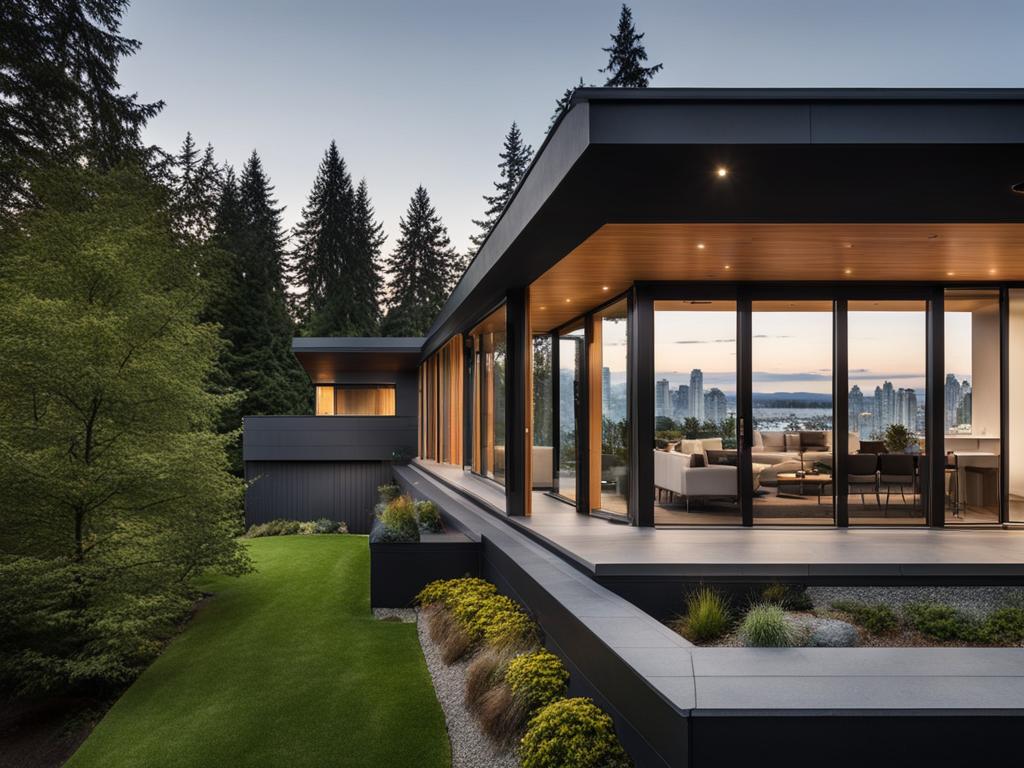
Thinking of finding your dream home in Vancouver? Prefabricated or prefab houses might just be the solution you’re looking for. With skyrocketing house prices and the growing trend of remote work, prefab homes have become increasingly popular in Vancouver. Companies like aux box, Blend Projects, and Hewing Haus are revolutionizing the prefab housing industry by offering high-quality designs and convenient living solutions. If you’re curious about prefab houses in Vancouver, read on to discover the benefits, customization options, and cost considerations of these modern homes.
Key Takeaways:
- Prefab houses offer convenience, low disruption, and are available in various models and configurations.
- Advantages of prefab houses include cost savings, shorter construction timelines, and reduced waste.
- The process of building a prefab house involves design, permitting, and construction.
- The cost of prefab houses in Vancouver can vary depending on factors such as size, materials, and complexity.
- Prefab houses are sustainable, energy-efficient, and can be customizable to suit individual preferences.
The Advantages of Prefab Houses
Prefab houses offer numerous benefits that make them a popular choice for homeowners. From cost savings to convenience, these homes provide a range of advantages that cater to the needs and preferences of modern living. Let’s explore the key advantages of prefab houses:
- Cost Savings: Prefab houses are more affordable compared to traditional construction. Their streamlined manufacturing process and bulk material purchasing result in cost savings that are passed on to the homeowners. This makes prefab houses an excellent option for those looking to maximize their budget and get more value for their money.
- Shorter Construction Timelines: Prefab houses are built in factories, away from the construction site. This allows for efficient construction and quicker completion times. With the elimination of on-site labor and weather delays, prefab houses can be built in a matter of weeks or months, reducing the overall construction timeline significantly.
- Reduced Waste: Prefab houses are constructed using precise measurements, which minimizes material waste. Additionally, the controlled environment of the factory allows for better management of resources, resulting in reduced waste generation. This eco-conscious approach contributes to a more sustainable construction process.
- Higher Quality and Energy Efficiency: Prefab houses are built using high-quality materials and adhere to stringent construction standards. The controlled manufacturing environment ensures superior craftsmanship and attention to detail, leading to higher overall quality. These homes are also designed with energy efficiency in mind, incorporating insulation, double-glazed windows, and advanced heating and cooling systems, reducing energy consumption and utility costs.
- Convenience and Flexibility in Design: Prefab houses offer a wide range of designs and floor plans to choose from. Whether you’re looking for a compact bungalow or a spacious family home, prefab houses can accommodate various needs. Moreover, these homes allow for customization and ease of expansion, giving homeowners the flexibility to adapt their living spaces as their requirements evolve over time.
- Eco-Friendly Construction: With a growing focus on sustainability, prefab houses are leading the way in eco-friendly construction. These homes incorporate sustainable materials, such as responsibly sourced timber, recycled materials, and low VOC paints. Additionally, prefab houses can be equipped with energy-saving features like solar panels and rainwater harvesting systems, making them an environmentally conscious choice.
To paint a clearer picture of the advantages of prefab houses, take a look at the following image showcasing an eco-friendly prefab house:
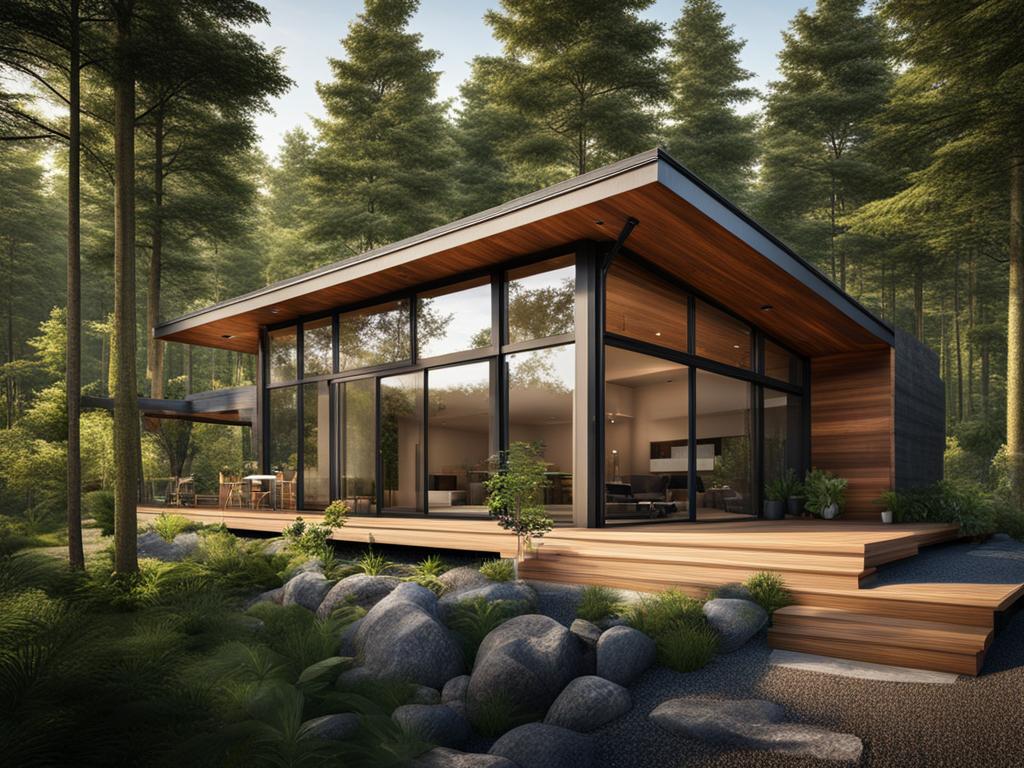
The Process of Building a Prefab House
Building a prefab house involves several stages, including design, permitting, and construction. Compared to traditional construction methods, the timeline for building a prefab house is generally shorter. On average, it takes about 10 to 12 months from start to finish.
The process begins with the design phase, where homeowners work closely with architects and designers to create a customised prefab house that suits their needs and preferences. The design phase is crucial as it sets the foundation for the entire project. Homeowners have the opportunity to customise various aspects of their new home, from floor plans and room layouts to interior finishes and exterior details. This level of customisation ensures that every prefab house is unique and tailored to the homeowner’s taste.
Once the design is finalised, the next step is obtaining the necessary permits. This includes submitting architectural plans, engineering reports, and other required documentation to the local authorities for approval. The permitting process ensures that the prefab house meets all building codes and regulations, ensuring safety and compliance.
With the design and permits in place, the actual construction of the prefab house can begin. The construction process involves manufacturing the prefabricated components off-site in a controlled factory environment. These components, including walls, floors, and roof sections, are then transported to the construction site for assembly. This process significantly reduces construction time as most of the house is built simultaneously off-site while site preparation is underway.
Once the prefabricated components are delivered, the on-site assembly process begins. Skilled contractors and construction crews work together to ensure that the prefab house is assembled accurately and efficiently. The precise fit of the prefabricated components results in a high-quality structure that is both sturdy and durable.
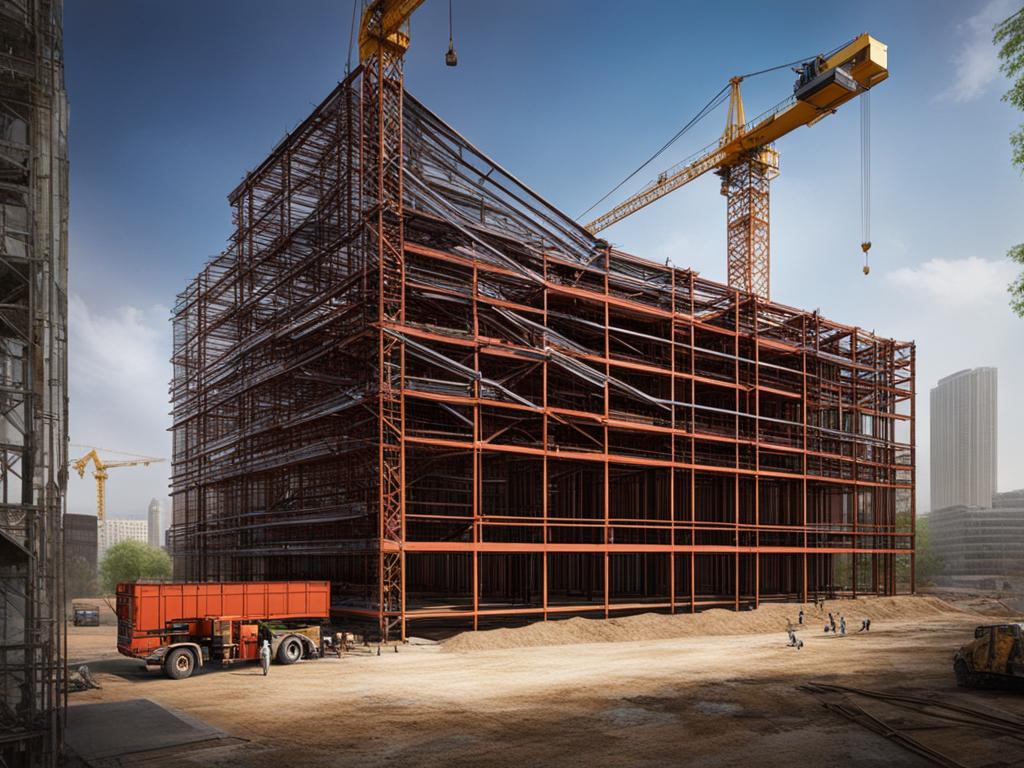
Timeline for Building a Prefab House
The timeline for building a prefab house varies depending on various factors such as the complexity of the design, size of the house, and site conditions. However, as a general guideline, it typically takes around 10 to 12 months to complete a prefab house project.
- Design Phase (1-2 months): This phase involves working with architects and designers to finalize the design and customisation options for the prefab house.
- Permitting (1-2 months): The permitting process can take some time as it involves obtaining approvals and permits from the local authorities.
- Prefabrication (2-4 months): The prefabricated components of the house are manufactured off-site during this phase.
- Site Preparation (1-2 months): Clearing and preparing the construction site for the assembly of the prefabricated components.
- Assembly and Construction (2-4 months): The prefabricated components are transported to the site and assembled by skilled contractors.
- Finishing Touches (1-2 months): The final stage involves installing interior finishes, such as flooring, fixtures, and appliances, to complete the prefab house.
The timeline provided above is a general estimate and can vary depending on the specific project requirements and circumstances.
Customization Options for Prefab Houses
Prefab houses offer a wide range of customization options, allowing homeowners to create living spaces that reflect their personal style and preferences. From floor plans to finishes, customization options are available at every step of the design process.
Homeowners can choose from a variety of floor plans to suit their needs and lifestyle. Whether they prefer an open-concept layout or separate rooms, prefab houses can be customised to accommodate different living arrangements. Additionally, various finishes and materials are available for different areas of the house, including flooring, cabinets, countertops, and fixtures.
Customization options also extend to the exterior of the prefab house. Homeowners can choose from different cladding materials, such as wood, brick, or metal, to achieve the desired aesthetic. They can also select window styles, roof designs, and other architectural details to complement their personal taste and preferences. These customization options ensure that each prefab house is a unique and personalised dwelling.
Cost of Prefab Houses Vancouver
When considering the cost of prefab houses in Vancouver, it’s important to take into account several factors that can influence the overall price. These factors include the size of the home, the materials used, the location, and the complexity of the project. By understanding these variables, you can better estimate the cost and find a prefab house that fits within your budget.
Price Range of Prefab Houses
The price range of prefab houses in Vancouver can vary significantly depending on the specific needs and preferences of the homeowner. For example, a simple prefab cabin can cost anywhere between £20,000 to £150,000. On the other hand, larger and more complex prefab homes can range from £100,000 to £500,000 or even more.
Prefab Cabin Costs
If you’re looking for a smaller and more affordable option, prefab cabins are a great choice. These cabins offer a comfortable living space and are ideal for those seeking a cozy retreat. With prices starting at £20,000, prefab cabins provide an affordable solution for those looking to enjoy the benefits of a prefab home without breaking the bank.
Prefab Home Costs
For those in search of a larger and more customized living space, prefab homes offer a wide price range to accommodate different budgets. Prices for prefab homes in Vancouver typically start at around £100,000, with more luxurious and expansive models reaching upwards of £500,000.
ADU Costs
Accessory Dwelling Units, or ADUs, are becoming popular options for homeowners looking to create additional living space on their property. These units can range in cost from £50,000 to £200,000, depending on the size, features, and customization options.
It’s important to note that these price ranges are rough estimates and can vary depending on individual circumstances and additional costs. Factors such as site preparation, delivery, installation, and permits should be considered when planning and budgeting for a prefab house in Vancouver.
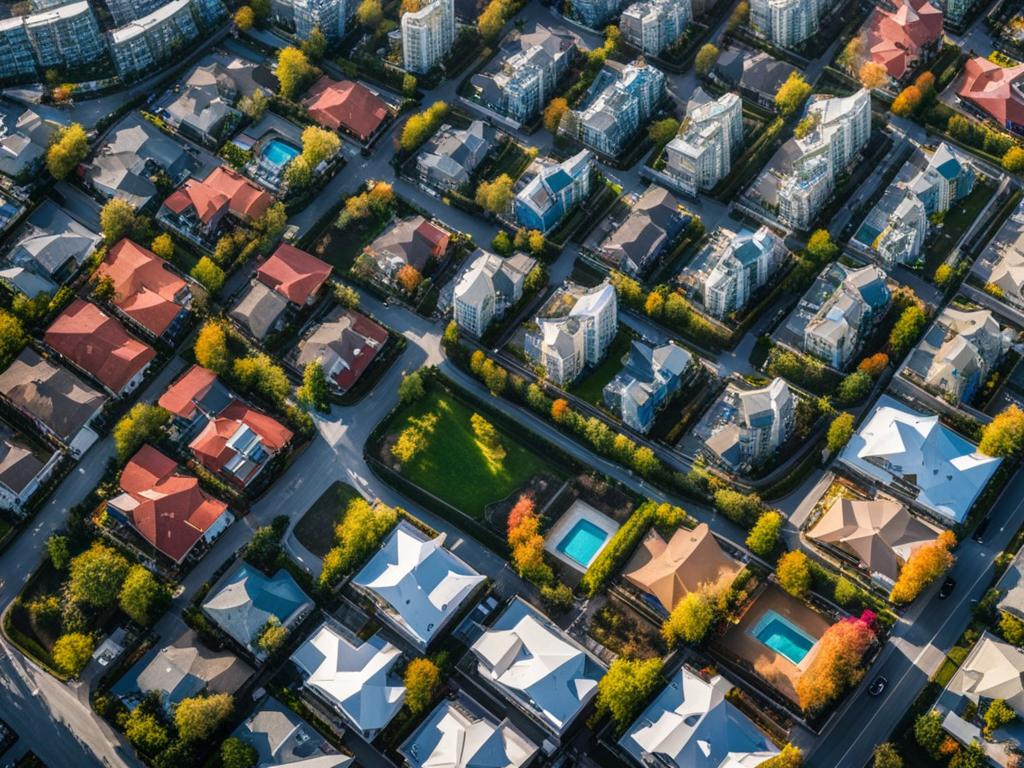
Sustainability and Energy Efficiency of Prefab Houses
Prefab houses are renowned for their sustainability and energy efficiency. These homes prioritize eco-friendly materials, such as formaldehyde-free cabinets, zero VOC paints, and finishes, to lower indoor contaminants and create a healthier living environment.
Energy-efficient systems are also integrated into prefab houses, including HEPA filtered air exchangers, low-E fiberglass framed windows, in-floor radiant heating, and air-to-water heat exchange systems. These features contribute to reduced energy consumption, lower utility bills, and a smaller carbon footprint.
Additionally, prefab houses have the potential to obtain LEED (Leadership in Energy and Environmental Design) certification, which recognizes and promotes sustainable building practices. LEED certification verifies that prefab houses meet stringent standards for energy efficiency, water conservation, indoor air quality, and sustainable site development.
By prioritizing sustainability and energy efficiency, prefab houses offer homeowners an environmentally conscious and cost-effective housing solution.
Customization Options for Prefab Houses
Prefab houses offer a wide range of customization options to meet individual preferences and create personalized living spaces. Homeowners have the flexibility to choose from various designs, layouts, and finishes, allowing them to tailor their prefab homes to their specific needs and style.
One of the key customization options for prefab houses is the choice of floor plans. Homeowners can select from a variety of floor plan options that best suit their lifestyle and living requirements. Whether it’s an open-concept layout for spacious living areas or a more compartmentalized design for privacy and defined spaces, prefab houses offer the flexibility to customise the floor plan to fit individual preferences.
Interior finishes also play a crucial role in the customization of prefab houses. Homeowners can choose from a wide range of finishes, such as flooring, cabinetry, countertops, and fixtures, to create their desired aesthetic and ambience. From modern and sleek designs to more traditional and rustic styles, the customization options for interior finishes allow for a personalised touch that reflects the homeowner’s unique taste and personality.
Another aspect of customization for prefab houses is the selection of window styles. Windows not only provide natural light and ventilation but also contribute to the overall visual appeal of the home. Homeowners can choose from different window styles, such as casement, double-hung, or picture windows, to enhance the architectural design and functionality of their prefab houses.
Exterior cladding materials offer yet another opportunity for customization. The choice of materials, such as wood, brick, or composite siding, can greatly impact the curb appeal and durability of prefab houses. Homeowners have the freedom to select the cladding material that best suits their desired aesthetic and matches the surrounding environment.
Some companies even offer modular design flexibility, allowing homeowners to easily expand or reconfigure their prefab houses as their needs change over time. This adaptability ensures that prefab houses can evolve along with the homeowner’s lifestyle, providing long-term satisfaction and functionality.
With a plethora of customization options available, prefab houses offer the opportunity for homeowners to create their ideal living spaces that are tailored to their unique taste, style, and requirements.
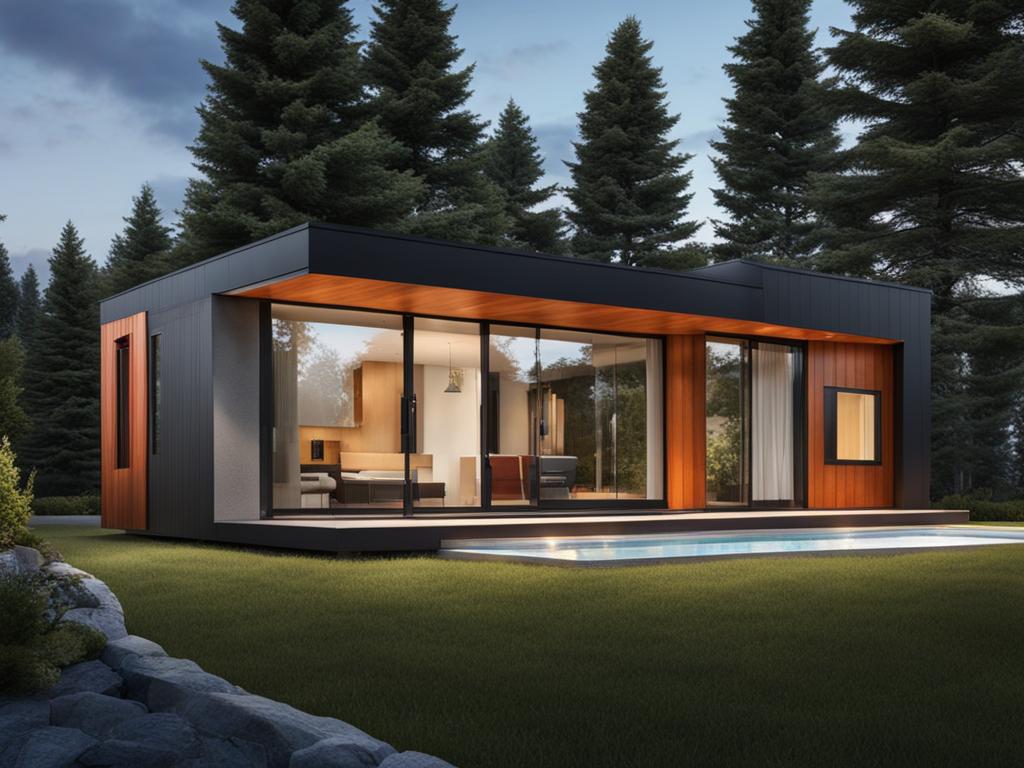
Showcasing Prefab Houses in Vancouver
At IDS Vancouver, an esteemed event in Vancouver, prefab house companies like aux box, Blend Projects, and Hewing Haus come together to showcase their innovative designs. One of the highlights of IDS Vancouver is “The Modern Prefab” feature, which focuses on elevated design in a small footprint. This event provides visitors with a unique opportunity to explore and experience the quality, creativity, and diversity of prefab houses available in Vancouver.
Through the presentation of their standard models, these companies demonstrate the versatility and variety that prefab houses offer. Visitors can witness firsthand the advancement in design, technology, and sustainable materials used in these homes. Showcasing the latest trends in the prefab housing industry, IDS Vancouver provides valuable insights into the future of elevated living in Vancouver.

Whether you are interested in a compact urban dwelling or a spacious family home, IDS Vancouver offers a glimpse into the world of prefab houses that can be customised to meet your specific needs. This event serves as a platform for architects, designers, and homeowners to connect, gather inspiration, and embark on their journey towards building the perfect prefab home in Vancouver.
Conclusion
Prefab houses offer a modern and convenient living solution in Vancouver. With the rising demand for affordable and sustainable homes, prefab houses provide cost savings, shorter construction timelines, and customization options. Companies like aux box, Blend Projects, and Hewing Haus are leading the way in showcasing high-quality prefab houses at events like IDS Vancouver. Whether it’s for additional living space, expanding income opportunities, or creating eco-friendly homes, prefab houses provide a viable and innovative housing solution in Vancouver.
FAQ
What are the advantages of prefab houses?
Prefab houses offer several advantages including cost savings, shorter construction timelines, reduced waste, convenience, and flexibility in design. They are also eco-friendly, incorporating sustainable materials and energy-efficient systems.
How long does it take to build a prefab house?
The timeline for building a prefab house is generally shorter compared to traditional construction, with an average of 10 to 12 months from start to finish. This includes the design phase, obtaining necessary permits, and the actual construction process.
What is the cost of building a prefab house in Vancouver?
The cost of building a prefab house in Vancouver can vary depending on factors such as size, materials, location, and complexity of the project. For prefab cabins, the cost can range from £20,000 to £150,000, while prefab homes can range from £100,000 to £500,000 or more. The cost of prefab ADUs (Accessory Dwelling Units) can range from £50,000 to £200,000.
Are prefab houses sustainable and energy-efficient?
Yes, prefab houses are known for their sustainability and energy efficiency. These homes incorporate eco-friendly materials and energy-efficient systems, such as low VOC paints, in-floor radiant heating, and air-to-water heat exchange systems. They can also be certified under LEED (Leadership in Energy and Environmental Design).
Can prefab houses be customized?
Yes, prefab houses offer a range of customization options. Homeowners can choose from various designs, layouts, and finishes to create personalized living spaces. Some companies even offer modular design flexibility, allowing for easy expansion or reconfiguration of the prefab houses.
Where can I see prefab houses in Vancouver?
Companies like aux box, Blend Projects, and Hewing Haus showcase their prefab houses at events like IDS Vancouver. The Modern Prefab is a feature at IDS Vancouver that highlights elevated design in a small footprint, providing insight into the latest trends and advancements in the prefab housing industry.
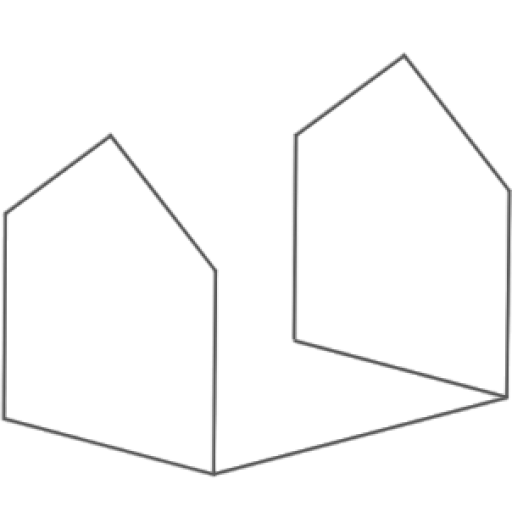
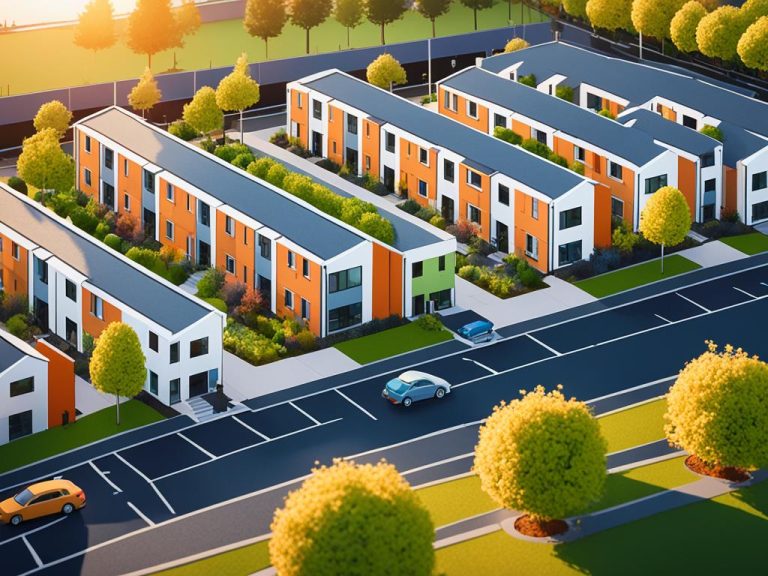
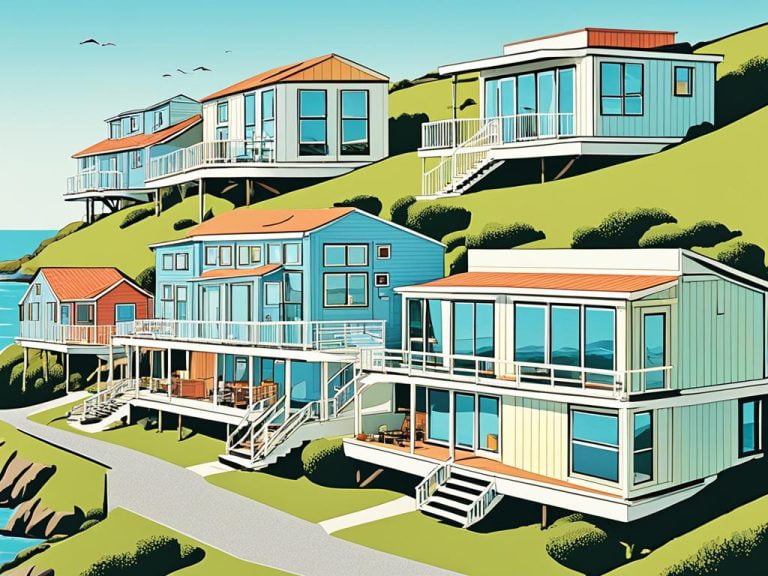
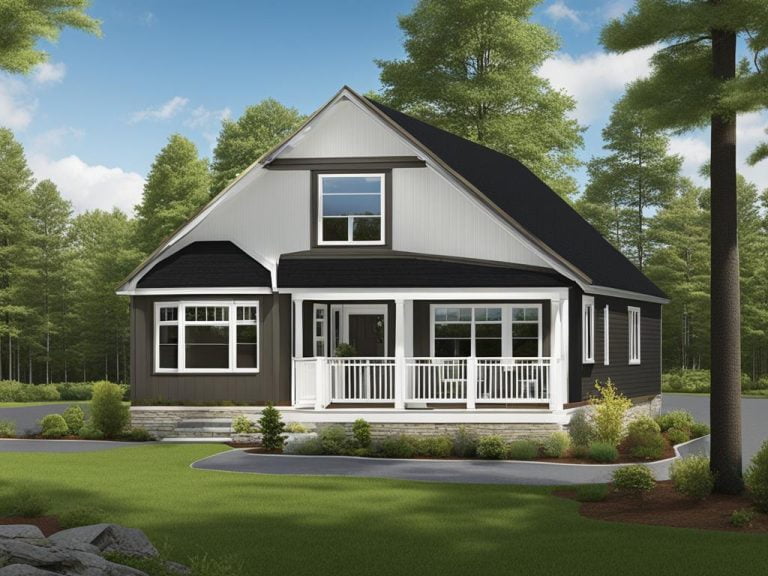
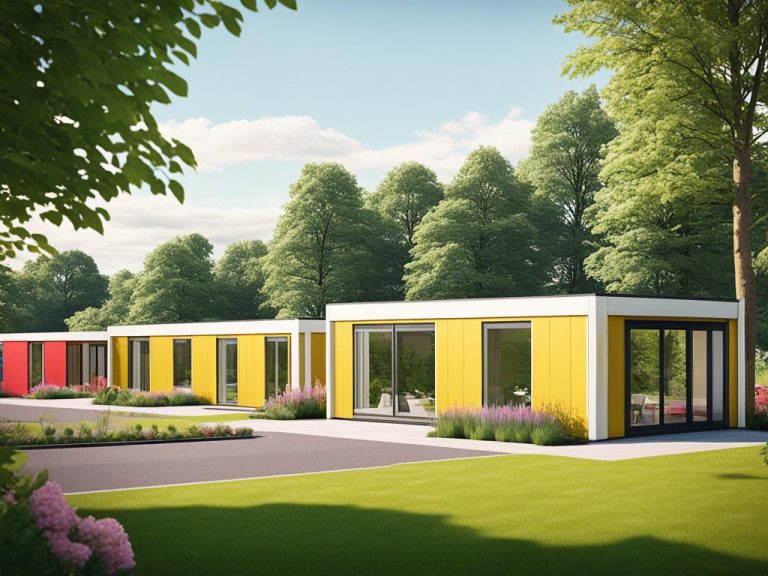
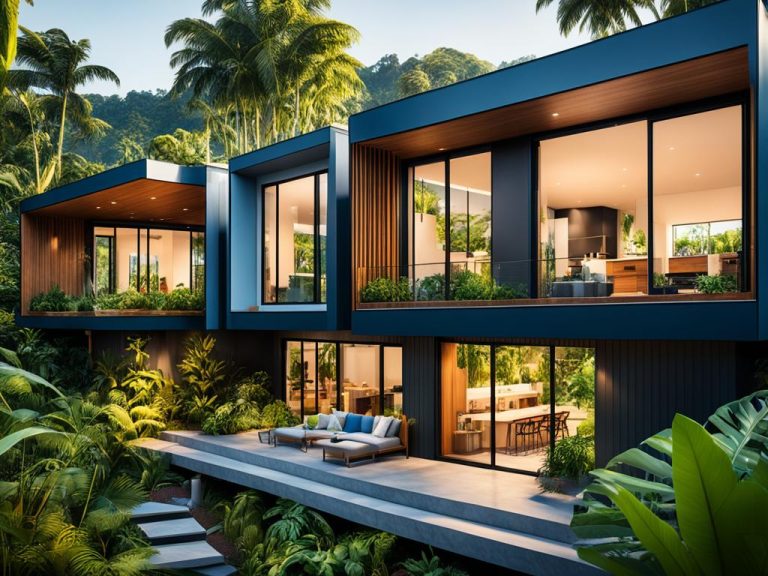
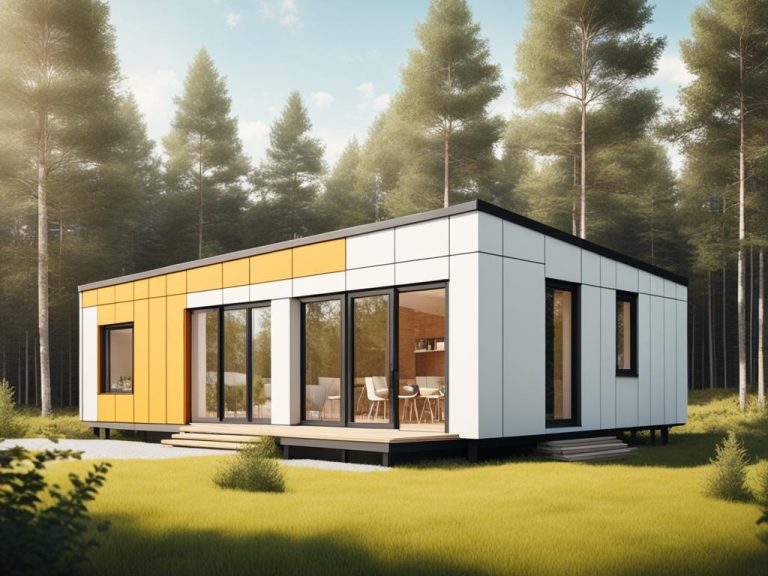
Can you be more specific about the content of your article? After reading it, I still have some doubts. Hope you can help me.